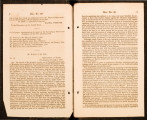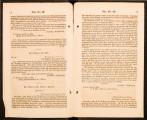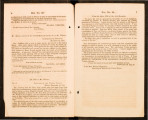| Title |
American Citizens Captured Near Santa Fe: Message... |
| Call Number |
E183.8.M6 U554 1842; Record ID 9924961190102001 |
| Date |
1842 |
| Description |
United States. Dept. of State. American citizens captured near Santa Fe: message...Washington, D.C.: The House, 1842 E183.8 M6 U554 1842 |
| Creator |
United States. Dept. of State |
| Publisher |
Digitized by J. Willard Marriott Library, University of Utah |
| Subject |
Mexico -- Foreign relations -- United States, United States -- Foreign Relations -- Mexico; United States. President (1841-1845: Tyler) |
| Type |
Text |
| Format |
application/pdf |
| Identifier |
American_Citizens_Captured_Near_SantaFe.pdf |
| Language |
eng |
| Collection Name |
Rare Books Collection |
| Holding Institution |
Rare Books Division, Special Collections, J. Willard Marriott Library, University of Utah |
| Rights |
 |
| Scanning Technician |
Cedar Gonzalez |
| Digitization Specifications |
Original scanned with Hasselblad H2D 39 megapixel digital camera and saved as 600 ppi tiffs. Display images created in Adobe Photoshop Lightroom 4 and generated in Adobe Acrobat ProX as multiple page pdf. |
| ARK |
ark:/87278/s6127g0z |
| Setname |
uum_rbc |
| ID |
297164 |
| Reference URL |
https://collections.lib.utah.edu/ark:/87278/s6127g0z |









